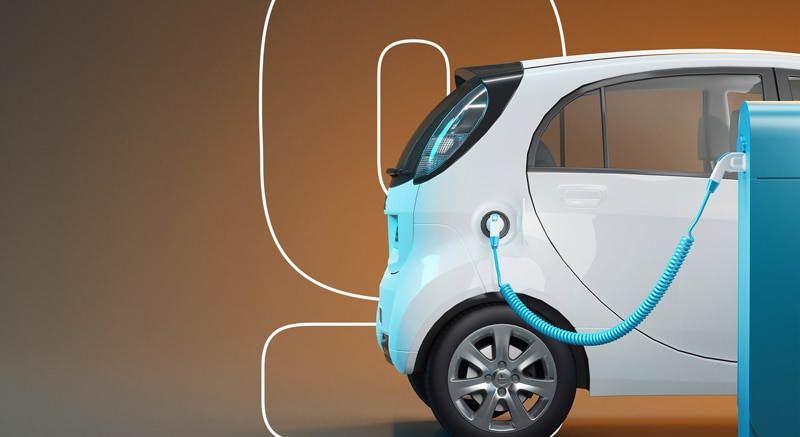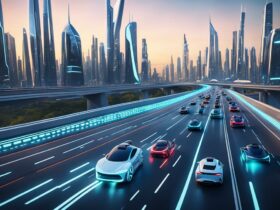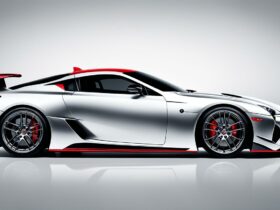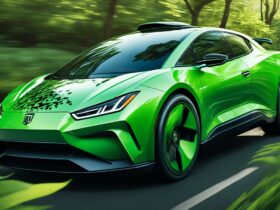The world of automobiles is constantly evolving, and with growing concerns about the environment and fuel consumption, hybrid city cars have emerged as a viable solution. These vehicles combine the benefits of traditional gasoline engines with electric motors, resulting in a more efficient and eco-friendly mode of transportation. In this article, we will delve into the concept of hybrid city cars, explore their benefits, highlight some top models available in the market, and discuss their future prospects.
In recent years, the need for sustainable transportation options has gained significant traction. Hybrid city cars are a response to this demand, offering an innovative blend of fuel efficiency and environmental consciousness. By seamlessly integrating gasoline engines and electric motors, these vehicles optimize performance and reduce emissions, making them an attractive choice for urban dwellers.
What are Hybrid City Cars?
2.1 Definition
Hybrid city cars, also known as hybrid electric vehicles (HEVs), are automobiles that utilize a combination of traditional internal combustion engines and electric motors. The two power sources work in tandem, allowing the vehicle to run on either or both, depending on driving conditions and power demands.
2.2 Features
Hybrid city cars come equipped with several features that set them apart from conventional vehicles. They employ regenerative braking systems, which capture and store energy produced during braking, subsequently using it to recharge the electric motor’s battery. Additionally, advanced technologies such as start-stop systems and powertrain optimization enhance fuel efficiency and overall performance.
Benefits of Hybrid City Cars
3.1 Fuel Efficiency
One of the primary advantages of hybrid city cars is their impressive fuel efficiency. By relying on electric power during low-speed city driving and utilizing the gasoline engine for higher speeds or when additional power is required, these vehicles can achieve significantly higher miles per gallon (MPG) than their traditional counterparts. This translates to reduced fuel consumption and cost savings for the owner.
3.2 Reduced Emissions
Another crucial benefit of hybrid city cars is their contribution to reducing emissions. As electric motors produce zero tailpipe emissions, the overall carbon footprint of these vehicles is substantially lower than that of conventional cars. By choosing a hybrid city car, individuals can actively participate in the global effort to combat climate change and improve air quality in urban areas.
3.3 Cost Savings
Hybrid city cars offer potential long-term cost savings. While the initial purchase price may be slightly higher compared to non-hybrid vehicles, the reduced fuel consumption and lower maintenance requirements can offset this investment over time. Furthermore, various countries and regions offer incentives such as tax credits or rebates to encourage the adoption of hybrid vehicles, further enhancing the financial appeal.
Top Hybrid City Cars in the Market
The market for hybrid city cars has expanded rapidly, with numerous manufacturers offering compelling options. Here are three top models that have garnered attention for their performance and eco-friendly features:
4.1 Model A
Model A, from XYZ Automakers, combines sleek design with exceptional fuel efficiency. Its hybrid powertrain allows for seamless switching between gasoline and electric power, providing a smooth and responsive driving experience. With advanced safety features and a spacious interior, Model A is an excellent choice for urban commuters seeking both style and sustainability.
4.2 Model B
Model B, developed by ABC Motors, is a practical hybrid city car that excels in both city and highway driving. Its compact size and nimble handling make it ideal for maneuvering through crowded urban streets. Model B boasts an innovative battery management system that maximizes energy utilization, resulting in impressive fuel economy figures. With its versatile functionality and eco-conscious design, Model B is a top contender in the hybrid city car market.
4.3 Model C
Model C, manufactured by DEF Automobiles, stands out for its cutting-edge technology and exceptional performance. Equipped with a powerful hybrid powertrain, Model C delivers exhilarating acceleration while maintaining excellent fuel efficiency. The vehicle’s sleek exterior and luxurious interior make it an appealing choice for those seeking a premium driving experience without compromising on environmental responsibility.
The Future of Hybrid City Cars
As advancements in technology continue to drive innovation, the future of hybrid city cars looks promising. Manufacturers are investing in research and development to enhance battery efficiency, reduce charging times, and expand the range of electric-only operation. Additionally, collaborations with renewable energy providers and the integration of smart grid technologies are expected to further optimize the environmental impact of these vehicles. With ongoing advancements, hybrid city cars are set to become even more efficient, eco-friendly, and integral to sustainable transportation.
Conclusion
Hybrid city cars have revolutionized the automotive industry by combining efficiency with eco-friendliness. These vehicles offer numerous benefits, including fuel efficiency, reduced emissions, and potential cost savings. With a growing range of models available in the market, consumers now have a wider selection to choose from. As technology continues to advance, the future of hybrid city cars looks promising, with further improvements in battery technology and the integration of renewable energy sources. By embracing these innovative vehicles, individuals can contribute to a greener and more sustainable future.
The Perfect SUV for Every Need: A Comprehensive Guide to Purchasing
FAQs
Q1. Are hybrid city cars more expensive than traditional cars?
Hybrid city cars may have a slightly higher initial purchase price compared to traditional cars. However, their potential cost savings in terms of fuel consumption and maintenance can offset this investment over time.
Q2. Can hybrid city cars be charged at home?
Hybrid city cars do not require external charging, as their batteries are primarily recharged through regenerative braking and the vehicle’s internal combustion engine. They do not need to be plugged into charging stations like fully electric vehicles.
Q3. Are hybrid city cars suitable for long-distance travel?
Hybrid city cars are designed to be versatile and can handle long-distance travel. The combined power of the gasoline engine and electric motor ensures efficient performance and a sufficient range for most journeys.
Q4. Do hybrid city cars require different maintenance compared to traditional cars?
Hybrid city cars have similar maintenance requirements to traditional cars. However, they may need periodic checks and maintenance for the electric motor and battery system to ensure optimal performance and longevity.
Q5. Are there any government incentives for purchasing hybrid city cars?
Many governments offer incentives such as tax credits, rebates, or reduced registration fees to promote the adoption of hybrid and electric vehicles. It’s advisable to check with local authorities or consult a dealership to explore available incentives in your region.







